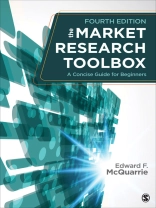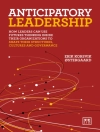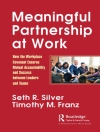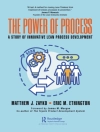Understanding marketing research to make better business decisions
An ideal resource for busy managers and professionals seeking to build and expand their marketing research skills, The Market Research Toolbox, Fourth Edition describes how to use market research to make strategic business decisions. This comprehensive collection of essential market research techniques, skills, and applications helps readers solve real-world business problems in a dynamic and rapidly changing business atmosphere. Based on real-world experiences, author Edward F. Mc Quarrie gives special attention to business-to-business markets, technology products, Big Data, and other web-enabled approaches. Readers with limited time or resources can easily translate the approaches from mass markets, simple products, and stable technologies to their own situations. Readers will master background context and the questions to ask before conducting research, as well as develop strategies for sorting through the extensive specialized material on market research.
Jadual kandungan
Preface
Plan of the Book
Who Should Read This Book?
A Note on Pedagogy
Acknowledgments
PART I: Introduction
1. Nature and Characteristics of Market Research
How Many Kinds of Market Research?
Research Techniques
Discussion Questions
Suggested Readings
2. Planning for Market Research
From Decision Problem to Information Gap
Types of Decision Problems: The Decision Cycle
Matching Tools to Decisions
Effective Application of Research Tools
Summary
Dos and Don’ts
Discussion Questions
Suggested Readings
Appendix 2A: Financial Planning for Market Research
PART II: Archival Research
3. Secondary Research
Procedure
Examples
Future Directions
Strengths and Weaknesses
Dos and Don’ts
Discussion Questions
Suggested Readings
Appendix 3A: Search Techniques for Gathering Market Information
Summary: Search Strategy for Secondary Research
4. Big Data
Before Big Data
Procedure
Future Directions
Strengths and Weaknesses
Dos and Don’ts
Discussion Questions
Suggested Readings
PART III: Qualitative Research
5. Customer Visits
Programmatic Customer Visits for Market Research
Examples of Visit Programs
Hybrid and Ad Hoc Examples
Cost
Strengths and Weaknesses
Future Directions
Dos and Don’ts
Discussion Questions
Suggested Readings
6. The Focus Group
Applications
Comparison to Customer Visits
Procedure
Cost Factors
Examples
Future Directions
Strengths and Weaknesses
Dos and Don’ts
Discussion Questions
Suggested Readings
7. Interview Design
Style of Questioning
Procedure for Question Selection
Some Good (and Bad) Questions
Good (and Bad) Interviewer Behaviors
Dos and Don’ts
Discussion Questions
Suggested Readings
8. Qualitative Sampling and Data Analysis
Why Sampling?
Projection from N = 1
Projections From Qualitative Samples of N is less than or equal to 32
Binomial Inferences
Multinomial Inferences
Measures of Association
Summary: Rules of Thumb
Implementing Qualitative Samples
Qualitative vs. Quantitative Sampling—An Integration
Qualitative Data Analysis
Discussion Questions
Suggested Readings
PART IV: Quantitative Research
9. Survey Research
Procedure
Conducting the Survey Yourself
Cost Factors
Applications
Future Directions
Strengths and Weaknesses
Dos and Don’ts
Discussion Questions
Suggested Readings
10. Questionnaire Design
Procedure
Generating Content for Questionnaires
Best Practices and Rules to Observe
Dos and Don’ts
Discussion Questions
Suggested Readings
Chapter 11: Experimentation
Example 1: Crafting Direct Marketing Appeals
Commentary on Direct Marketing Example
Example 2: Selecting the Optimal Price
Commentary on Pricing Example
Example 3: Concept Testing—Selecting a Product Design
Commentary on Product Design Example
Example 4: A-B Tests for Website Design
Commentary on the A-B Test Example
General Discussion
Future Directions
Strengths and Weaknesses
Dos and Don’ts
Discussion Questions
Suggested Readings
12. Conjoint Analysis
Designing a Conjoint Analysis Study
Future Directions
Strengths and Weaknesses
Choosing Among Options for Experimentation
Dos and Don’ts
Discussion Questions
Suggested Readings
13. Sampling for Quantitative Research
Types of Samples
The Terrible Beauty of Probability Samples
How to Draw a Probability Sample
Estimating the Required Sample Size
Formula for Computing Sample Size
Estimating the Variance for a Proportion
Estimating the Variance for a Mean Value
Sampling Reminders and Caveats
Discussion Questions
Suggested Readings
14. Quantitative Data Analysis
Procedure
Types of Data Analysis in Market Research
Managerial Perspective on Data Analysis
Dos and Don’ts
Discussion Questions
Suggested Readings
PART V: The Big Picture
15. Combining Research Techniques Into Research Strategies
Developing New Products
Redesigning a Website
Assessing Customer Satisfaction
Segmenting a Market
Expanding Into New Markets
Repositioning a Brand
Developing an Advertising Campaign
Commentary
Discussion Questions
16. The Limits of Market Research
Identifying Boundary Conditions
Formulating Boundary Conditions
When Quantitative Market Research Can’t Be Done
What Qualitative Research Can Do
Summary and Conclusion
Discussion Questions
Suggested Readings
Index
About the Author
Mengenai Pengarang
Edward F. Mc Quarrie is a professor in the Department of Marketing, Leavey School of Business, Santa Clara University, in California’s Silicon Valley. He received his Ph.D. in Social Psychology from the University of Cincinnati in 1985 and a B.A. in Psychology and Literature from The Evergreen State College in 1976. His research interests include market research appropriate to technology products, on the one hand, and advertising strategies that call on rhetoric, narrative, and semiotic resources on the other. He has also written the book Customer Visits: Building a Better Market Focus, co-edited the volume Go Figure! New Directions in Advertising Rhetoric, and published articles in the Journal of Consumer Research, Journal of Advertising, Marketing Theory, Journal of Consumer Psychology, Journal of the Market Research Society, Journal of Advertising Research, and the Journal of Product Innovation Management, among others. For a current list of publications, you can access his profile on scholar.google.com or researchgate.net. He was Associate Dean for Assessment at the Leavey School of Business, 2001-2010, responsible for the assessment of learning outcomes and the evaluation of teaching. He was Associate Dean for Graduate Studies, 1996–2000, responsible for the MBA and Executive MBA programs. Professor Mc Quarrie began moderating focus groups in 1980 for Burke Marketing Research. He has consulted for a variety of technology firms and has taught seminars on effective customer visits, managing focus group research, marketing research methods, and similar topics for the Management Roundtable, Hewlett-Packard, Sun Microsystems, Microsoft, Apple Computer, Tektronix, Varian Associates, Cadence Design, and other clients, in England, Germany, and New Zealand as well as the United States.












